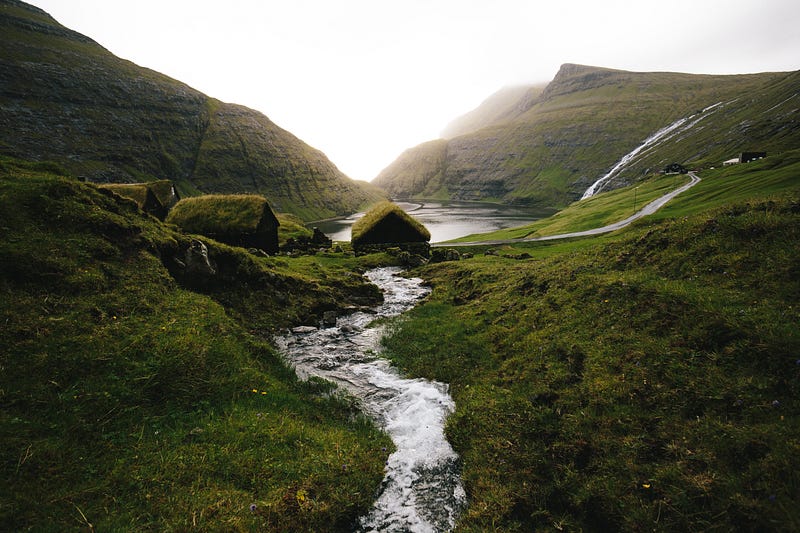Flowers that won’t Grow
The village finds a flower that never dies, but things are not as they seem.

The hills rolled down from the mountains and the valleys rose to catch them.
It was a cool spring morning. The people of the valley rose with the sun.
All was quiet as the people poured over the land, the damp smell of the earth hung in the air.
The High Priest came from over the hill, returning from his morning walk.
“Behold, I have found it,” he cried, “everlasting life.”
The news passed quickly through the village. In a column, the people of the valley followed the priest into the hills.
“Here,” the priest pointed at the ground. “This flower does not die.”
A flower glittered in the sun, rising from a mound of dirt in the field. With a twisted stem and a shock of silver and red petals, it stood before them.
“I have watched it for many weeks. It does not wilt, it lasts forever.”
The people fell to their knees. Some cried and some laughed, all of them faced the flower together, rejoicing.
“We shall, all together, return here every day to celebrate this miracle,” the priest said, “this flower represents our hope. Our hope for eternal life, and freedom from death.”
And so it was. For many weeks the people would wake and move as one, following the path by the light of the dawn to behold the holy flower.
Day after day, the flower remained perfect.
It was morning again, and the sun rose to greet the people of the valley. Something had changed, but they did not yet know.
The flower would not be where they had first found it.
The mass gathered around the holy field. There was silence, but it was shattered by an uproar. The priest cried, “who could have done this? how dare they? Prepare your weapons for war.”
The crowd ripped over the hilltops, the priest leading them. The dust rose high as they ran back into the village.
There was a clanging of metal and lighting of torches. The people gathered in the center of their village, their weapons in their hands, rage in their eyes, and vengeance in their hearts.
But there it was.
There, in the center of the village, was the flower. It was in the hands of a little boy.
The people stared in shock and the boy stared back.
Finally, the priest stepped forward, his voice shaking. “My son, you have desecrated the holy flower. It has protected us from death, but now you have killed it.”
The boy looked back, confused.
“Dasac-rated?”
Silence hung thick in the air.
“My son, you have killed it. The holy flower.” The Priest was growing angry. “Why have you done this?”
Tears ran down the face of the people. The boy’s mother collapsed to the ground.
“But I made this flower High Priest!”
There was a pause. Then the High Priest rushed forward. “What do you mean? Explain yourself.”
The boy stumbled backward and started to cry.
“I liked it at first, I thought it was pretty, like the other flowers in the fields. But it won’t grow. I got bored of it, I got bored of it.” The boy sat in the dirt and covered his face.
The Priest exhaled as the anger began to leave his eyes. He bent down and took the flower.
Holding it in his hands, he lifted it up in the light. A whisper came from under his breath. “Coca-cola.”
The people stared, confused. The priest turned and sat down next to the boy.
Underneath one of the petals, the letters stood out clearly. “Coca-cola,” The priest said louder.
“I found it in the river, in the trash that comes from the big city. I twisted it into a flower. I made it,” The boy said, “and I don’t like it anymore. It doesn’t grow like the other flowers.”
